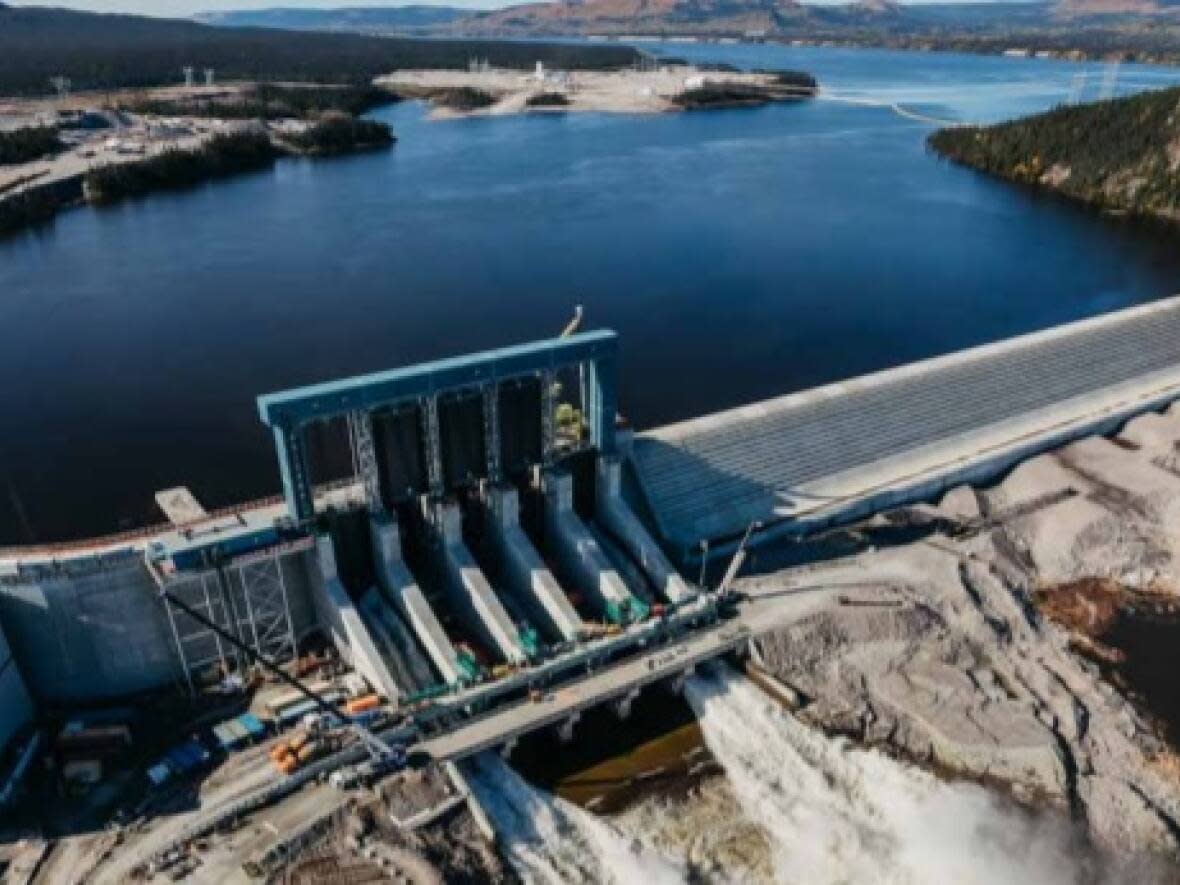Muskrat rate mitigation deal coming this year, says Energy Department

A plan to keep electricity rates from skyrocketing once the Muskrat Falls project is fully online will be finalized before the end of this year, but still beyond the original deadline of Sept. 30.
An official with the Department of Industry, Energy and Technology confirmed to CBC News on Tuesday afternoon that a deal is just weeks away, and that an earlier statement issued by the department was incorrect.
On Monday, in response to an inquiry from the CBC, the department issued a statement saying the provincial and federal governments are working "to finalize and implement the rate mitigation plan in 2022."
That would have represented a major delay in the timeframe for a formal agreement, since the troubled hydroelectric generation and transmission project is scheduled to be finished early next year, raising the question about how soaring power rates would have been avoided once the payments became due for a project that is years behind schedule and billions over budget.
CBC highlighted the delay in a story published Tuesday afternoon, which drew a quick response from a senior official in the department, acknowledging that the original statement to CBC erroneously said 2022 instead of 2021.
"It was a mistake on our part," said the official.
Despite the delay, Hydro president and CEO Jennifer Williams offered assurances that electricity rates will remain affordable in the Muskrat era.
"I know that we're not going to have rates double as was originally predicted. I'm confident that the rates will be appropriate and fair for the people of the province," Williams said on Monday.
This is just the latest in a series of delays for a rate mitigation deal, and for the troubled project as a whole.
In late July, roughly two weeks before the official launch of a federal election campaign, Prime Minister Justin Trudeau and N.L. Premier Andrew Furey announced a $5.2-billion agreement in principle they say will prevent electricity bills from doubling once the project is commissioned.
The agreement was scheduled to be in place in late September, but just a few days before that deadline, officials said the provincial government needed more time.
"Work is continuing on the definitive agreements. Things are progressing; however, it appears it may take a little longer," an Energy Department official wrote in a statement to CBC on Sept. 27.
"The deadline was intended to ensure people continued to work diligently. The fact it will likely pass does not affect the work and the conclusion of the definitive agreements."
A followup request for information with the department this week revealed the timeline is now more open-ended, with the plan to be finalized and implemented some time next year.
CBC News requested an explanation for the new timeline but the provincial government didn't provide one.
This latest hiccup coincides with another setback for the project, with Newfoundland and Labrador Hydro confirming earlier this month that the scheduled completion date for the project — Nov. 26 — is no longer achievable.
That's because GE, the contractor developing the specialized software for the Labrador-Island Link, continues to encounter glitches and bugs and has missed its own series of deadlines.
Muskrat Falls was sanctioned nine years ago at a cost of $7.4 billion, including financing and interest charges during construction, and was scheduled to enter service in 2017. However, the project has been beset by delays and controversy, with the final cost now forecast at $13.1 billion.
Without intervention by the federal government, electricity rates on the island part of the province would nearly double, to just under 23 cents per kilowatt-hour, according to a report from the Public Utilities Board.
Such an increase would be unprecedented in the history of electrical power regulation under the utility regulator, and perhaps unprecedented in North American, according to documents.
Under the new tentative deal with Ottawa, rates will still rise to 14.7 cents, about a 10 per cent increase, with annual increases of about 2.25 per cent.
Under the terms of the deal, Ottawa agrees to give annual cash transfers to Newfoundland and Labrador equal to what it makes from interest in the Hibernia offshore oil project. The federal government pegged that portion of the deal as worth $3.2 billion between now and the end of Hibernia's lifespan.
The agreement also includes $2 billion in federal financing, half of which comes in the form of a federal loan guarantee. The other $1 billion is billed as an investment in Newfoundland and Labrador's portion of the Labrador-Island Link, the transmission system that carries Muskrat Falls power from central Labrador and distributes it across the island.


